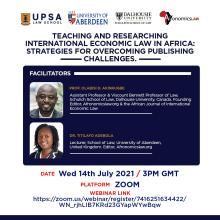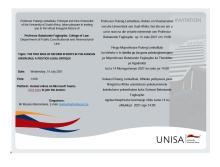Afronomicslaw.org Academic Forum Guest Lecture Series: An Introduction to Chinese Law and African Interests
July 14, 2021
The Afronomicslaw.org Academic Forum invites you to join their guest lecture series.
Title: An Introduction to Chinese Law and African Interests
Date: Saturday July 17, 2021
Time: 16:00 CAT, 17:00 EAT.
Zoom Registration here.
Guest Speaker:


